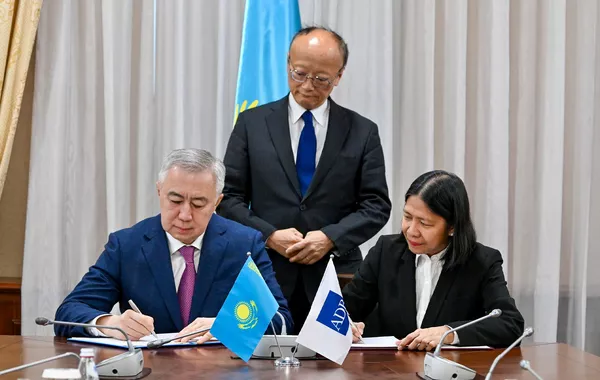
photo: iStock
During the first five months of 2025, over 300 billion tenge ($576.9 million) was invested in Kazakhstan’s tourism sector.
Amid global disruptions, including strikes in Europe, Middle East conflicts, fires in Türkiye, and Russia’s air transport crisis, Kazakhstan sees a unique opportunity to boost domestic tourism, The Caspian Post reports via Kazakh media.
The summer of 2025 has become a turning point. The domestic tourist flow exceeded 10.5 million people in 2024, while outbound tourism reached 15.6 million. Experts attribute this shift to the revaluation of familiar local routes and increased availability of domestic flights.
International travel is increasingly complicated. Flights are rerouted or delayed, Kazakhstan’s airlines currently suspended flying over Iran, Israel, Iraq, Jordan, Lebanon, and Syria.
Meanwhile, growing domestic demand has prompted more support for local air travel: in 2025, 6.4 billion tenge ($12.3 million) was allocated to subsidize flights on socially significant routes. This covers 23-24 directions, including nine key tourist destinations such as Astana-Turkistan, Almaty-Turkistan, Aktobe-Turkistan, and flights to Alakol, where SCAT Airlines now operates seven flights a week.
Tourist infrastructure is also expanding. Multifunctional complexes are being built along highways, more sanitary facilities are appearing, and new airports are being prepared in Kentau, Burabai, Zaisan, and Kokshetau.
Special attention is being paid to Baikonur - the cosmodrome has entered the top 20 tourist destinations in the country. A yurt observation platform has opened here, excursions are held to Gagarin’s Start, Korolev Museum and other sites that have come under the jurisdiction of Kazakhstan.
As part of its strategy, Kazakhstan partners with international hotel brands from Thailand, Türkiye, China, Russia, and Gulf countries, focusing on Almaty, Astana, Mangystau, East Kazakhstan, and the Shchuchinsk-Burabai resort area. Still, as Kazakh Tourism notes, 90 per cent of supported projects are led by Kazakh investors.
There are still some challenges, including mismatches between service levels and hotel star ratings, a shortage of accommodations, and underdeveloped infrastructure. Many sites still lack good roads, restrooms, and cafes. Efforts are underway to update legislation for better hotel classification and international compliance.
Medical tourism is also growing. Nine Kazakh clinics hold international JCI accreditation, drawing patients from Europe and the CIS for quality, affordable care.
“One medical tourist stays for at least a week, or even two, using hotels, taxis, and public catering. This creates a multiplier effect and benefits the entire economy,” experts highlight.
Share on social media
